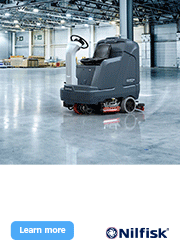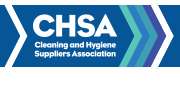The pandemic has had a major impact on the commercial cleaning needs of many firms during the pandemic, but perhaps none more so than premises where food preparation is involved.
While many offices have been empty or mostly empty and thus have needed less general cleaning, the requirement to disinfect surfaces more regularly and ventilate the air has been of paramount importance.
In the food sector, however, the evolving relationship with the cleaning industry has been more complex, as has been outlined by trade website Food Manufacture.
To begin with, some premises have been mothballed because of lockdowns, with pubs, cafes and restaurants among those being shut down. By contrast, essential food providers remained open, including shops and takeaway outlets, and in these cases the need for heightened hygiene measures added extra pressure and required more stringent steps than were required in pre-pandemic times.
Mariane Hodgkinson, a Hygiene specialist at cleaning tools maker Hillbrush, said this contrast could be seen in the way that those supplying equipment to retailers have been “extremely busy”, whereas those providing tools for the food service sector have had “a particularly tough time over the last 18 months”.
However, she noted, the changes that have been brought by the health emergency are likely to bring some lasting effects, with many of the changes helping “improve food safety as well as workplace wellbeing”, which means these steps are likely to be part of a permanent approach that will continue in the future.
At the same time as there is a greater need for hygiene, the actual number of available staff has been reduced. This is not just a matter of furlough, with technical director at Christeyns Food Hygiene Peter Littleton Commenting: “Frankly, working a night shift in a cold, wet food factory is becoming increasingly unattractive is alternative employment is available.”
The problem, he noted, is that without skilled hygiene work overnight, workers will be coming back into the facility the next day and encountering an environment that may not be fully clean and sterile, with any potential bugs eliminated.
He added that the use of automation in cleaning is not yet a solution in the UK, although it is growing in the US.
The overall situation highlights just how important it is, despite the large challenges faced, for the food sector to maintain string health and safety standards. Indeed, the benefits of having higher standards and enforcing them on a permanent basis are obvious: Just as hand washing will keep away all kinds of other germs as well as Covid, so too will cleaner commercial premises.
It remains to be seen how the emergence of the Omicron variant will affect matters. In the worst case, it could spread rapidly, evade vaccine and pre-infection immunity and have such an impact on
hospitalisation and deaths that a new lockdown or something approaching it will be required, shutting down many food serving businesses.
Equally, it could turn out to only cause mild illness for most - especially those vaccinated - and could be held at bay by a combination of border testing, mask wearing and booster jabs.
If the latter proves true, the current situation where food serving outlets can keep going but need the toughest cleaning regimes will persist for the foreseeable future.




















































